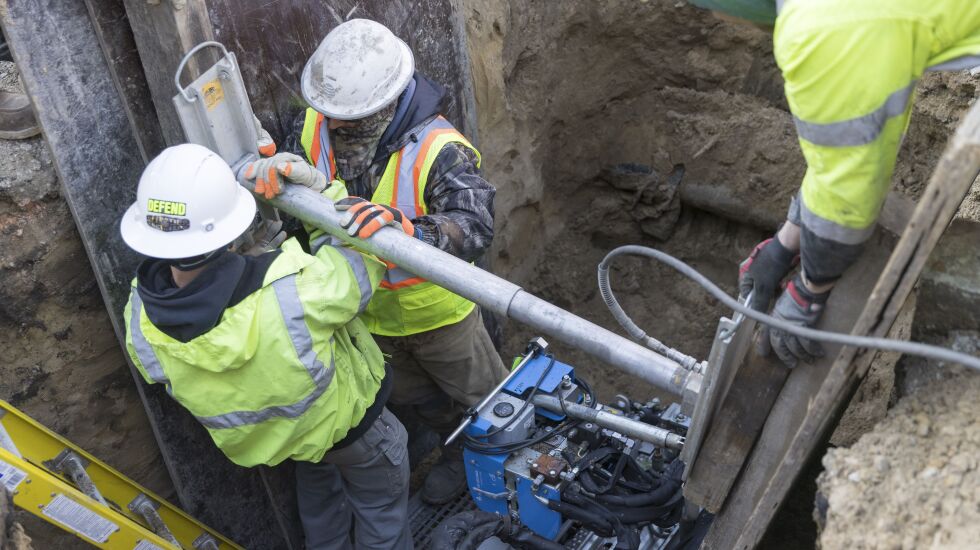
Little Village is home to a diverse and vibrant community of people, including many Latine families like mine.
But for years, our drinking water has been contaminated with lead due to old lead service lines and plumbing that have yet to be replaced. Community members have shared our concerns time and time again with our local government officials who have dragged their feet when it comes to taking action.
It’s time that our voices are heard, from the city level all the way to Washington.
Nearly all of the homes (96%) in Little Village were built before lead pipes were banned in 1986, meaning it’s likely that many of the homes in our community have lead-contaminated drinking water. Across Chicago, one in 20 tap water tests found lead at or above the federal limit, based on an analysis of tests conducted between 2016 and 2021 for 24,000 Chicagoans.
In 2018 I began organizing around water issues in Little Village after we were made aware of lead testing in Chicago Public Schools that took place from 2016-2017. When we requested the results for our local schools, we learned that Zapata Elementary School, with students in grades pre-K to eighth grade, had tested positive for lead in the school’s water. While school officials did send out letters to families letting them know about the problem, we decided to host a community town hall on the issue.
This prompted the beginning of our water work, in which we inform our neighbors about where lead comes from and the health consequences of lead exposure that puts our kids at risk of brain developmental delays, behavioral issues, lower IQ and more, that will affect them for the rest of their lives. We also shared that in adults, lead consumption is linked to cardiac and kidney issues.
Our families have had to take matters into our own hands by purchasing water filters, but not everyone is financially able to afford them. While the city does provide free water filters, there are restrictions on eligibility and other barriers to access. So at the peak of the pandemic, when a lot of people were being laid off, we organized efforts to distribute water bottles and water pitchers and filters to our most vulnerable population — the elderly, children and pregnant people.
Strong federal action is needed
During these scary times, we learned that a lot of our neighbors have such mistrust that they hardly use their tap water unless it’s for cleaning or sanitation purposes. All the while, water and sewer bills have soared in cost in the last decade, so residents were paying for service they could not safely and confidently use on a daily basis.
Solving this decades-old problem shouldn’t be placed on the shoulders of those already suffering the consequences of lead in their drinking water. The federal government has provided funding to help cities and states pay the cost of replacing lead service lines, but we need the government to take bolder action to solve this problem as quickly as possible.
That’s why on Wednesday, Oct. 4, environmental justice activists, labor organizations, teachers, and community members will rally together at Daley Plaza to call on the Biden administration and the Environmental Protection Agency to propose the strongest possible Lead and Copper Rule Improvements (LCRI) to swiftly get the lead out of our drinking water and protect our health.
A strong LCRI would ensure that the Biden administration’s promise to replace every lead service line in the next 10 years becomes a reality. It would also protect impacted community members from shouldering the cost of lead service line replacement and hold water utilities accountable. Organizations, like the Little Village Environmental Justice Organization, have worked tirelessly to educate and uplift the voices of Little Village residents, regardless of their language, age, or race.
With LVEJO, I’ve worked directly with community members to conduct research and advocate for safe, affordable drinking water. This LCRI would help provide these organizations with support to finally secure clean drinking water for all communities, especially communities of color.
Join us on Oct. 4 to bring awareness to this public health crisis and demand change from Chicago and our federal government to get the lead out of our water once and for all.
Nancy Meza is a senior community organizer at the Little Village Environmental Justice Organization, focusing her work on water justice.







